What is sales training?
Sales training is an essential component of any organisation’s growth and success. It equips salespeople with the necessary strategies, knowledge, skills, and tools to sell products and services to potential customers effectively and with confidence. But what exactly should sales training include? This post will explore the critical elements of a comprehensive sales training program, the different methods used to deliver it, and some of the top programs available. We’ll also offer tips on how to get the most out of any program especially given the investment of time.
What should sales training include?
First, let’s look at what content a comprehensive sales training program should include for businesses. At a minimum, sales training should cover the basics of the sales processes, including lead generation, qualification, and closing the sale. It should also cover product and industry knowledge and communication and negotiation skills. Additionally, sales training should provide an overview of the company’s sales strategy and sales management processes that impact their clients.
Another important element of sales training is role-playing and other interactive activities. These activities help to reinforce learning and provide an opportunity for sales professionals to practice the skills they’ve learned in a safe and supportive environment so that they can work on mastering sales course concepts.
How should sales training be delivered?
In terms of delivery methods, sales training can be delivered in a variety of ways, including:
- Classroom-based instruction (Face to Face): This is the most traditional method, with a trainer leading a group of salespeople through the material in a classroom setting.
- Online or e-learning: This method allows salespeople to complete the training at their own pace and can be a cost-effective option for companies with a large sales force.
- On-the-job training: This method provides participants with the opportunity to learn and practice their skills while working in the field under the guidance of a mentor or experienced salesperson.
- Coaching or mentoring: This method pairs salespeople with experienced sales trainers who provide guidance and feedback on their performance.
What are the top sales training programs
When selecting a sales training program, there are many options available. Some of the top programs include:
- The Sandler Selling System– a sales training and management system developed by David H. Sandler. It is based on the idea that traditional sales techniques, such as manipulation and persuasion, are less effective in the long-term and that a relationship-based, non-manipulative approach is more successful. The system emphasises building trust and understanding the customer’s needs, rather than focusing on closing the sale. It also includes techniques for managing the sales process and handling objections. It is widely used in sales training and coaching programs.
- SPIN Selling– a sales methodology developed by Neil Rackham and his research team at Huthwaite, Inc. It stands for Situation, Problem, Implication, and Need-Payoff. The method focuses on asking open-ended, probing questions to uncover the customer’s needs, rather than making assumptions or using generic pitches. The technique is based on the idea that the best way to sell is to ask questions that reveal the customer’s needs, concerns, and decision-making criteria. The acronym SPIN stands for four types of questions that the salesperson should ask: Situation questions to understand the current state of the customer, Problem questions to understand the issues the customer is facing, Implication questions to understand the impact of the problem, and Need-Payoff questions to understand the desired outcome. This methodology is widely used in B2B selling and often used for high-value, complex sales.
- The Challenger Sale– a sales training and management methodology developed by Brent Adamson, Matthew Dixon, and Brent Adamson from CEB (now Gartner). The methodology is based on the idea that the most successful salespeople can challenge the status quo and the customer’s existing thinking by bringing new ideas, insights and perspectives to the table. It emphasises that traditional relationship-building and education-based selling methods are less effective in today’s complex and dynamic business environment. Instead, it encourages salespeople to take a more assertive approach by challenging the customer’s current thinking and offering new ideas that can help the customer to achieve their goals. The Challenger Sale model is based on five key skills: challenging the customer’s thinking, providing unique insights, tailoring the message to the customer, delivering a compelling value proposition and creating a sense of urgency. It is widely used by organisations across different industries.
- The Miller Heiman Strategic Selling– a sales training and management methodology developed by Miller Heiman, a sales performance company. It focuses on helping salespeople to identify, qualify and close complex sales by providing them with the knowledge, skills and tools they need to navigate the sales process more effectively. The methodology is based on the idea that the sales process is a series of distinct stages, each requiring specific knowledge, skills, and tools. The Miller Heiman Strategic Selling model is comprised of four key components: the Strategic Selling process, the Conceptual Selling process, the Large Account Management process, and the Sales Coaching process.
- The Strategic Selling– a step-by-step guide that helps salespeople to identify, qualify and close complex sales opportunities by providing them with the knowledge, skills, and tools they need to navigate the sales process more effectively. It involves understanding the customer’s needs and objectives, developing a sales strategy, and creating a value proposition that aligns with the customer’s needs.
Each of these programs has its unique approach to sales training and has been proven effective in helping salespeople increase their sales. Choosing the right program for your organisation will depend on your specific needs and goals.
Here are a few tips to help you be effective
- Be passionate about your subject matter: If you’re passionate about sales, it will be easier for you to convey that passion to people and inspire them to act. The type of energy you convey will be driven by your mindset.
- Be knowledgeable: It’s important that you have a deep understanding of the sales process and the specific product knowledge or intelligence of the services you’re selling.
- Be adaptable: Different people will prefer different ways to be approached. Be flexible in your approach and be willing to adjust your sales methods to suit the needs of your customers.
- Be engaging: Sales can be dry and tiresome if not done right. Keep your customers engaged by using interactive activities and incorporating real-life scenarios.
- Be supportive: People need support and guidance as they learn about your products/services. Be available to answer questions.
How Can I Improve My Sales Team Performance?
In conclusion, sales training is essential to the success of any organisation’s sales team. Comprehensive sales training courses should include the basics of preparing your mind, the sales process, product and industry knowledge, and communication and negotiation skills. There are several different methods to deliver sales training, and many effective programs are available. Whether you are an aspiring entrepreneur, a customer service team member, a business owner or a business development manager, regular sales training will help keep you fresh and motivated to grow your business sales and revenue and improve your customer engagement.
We offer a dynamic and comprehensive sales training program.
By providing a comprehensive training program and utilising various delivery methods, you can be sure your team will be with an effective trainer who can help drive success for your organisation and achieve your sales goals.
Dynamo Selling specialises in providing sales training for professionals across all industries. Our training programs are customized to meet the specific needs of national sales teams, small groups, or individual salespeople. Our goal is to enhance existing sales skills and knowledge to help salespeople become top-performing professionals and improve sales results. We offer a range of training services for groups of all sizes, using engaging and effective methods to motivate and develop the skills, insights, and techniques taught in our courses and hold workshops Australia-wide. If your organisation is ready to up its sales level in 2023 call us and speak to Raimond and his amazing team.
Unlock your potential with our sales training packages and book your workshop today!
[/av_textblock]

